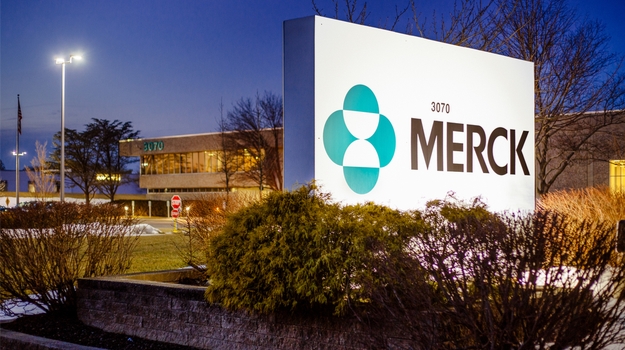Merck’s checkpoint inhibitor Keytruda (pembrolizumab) continues moving toward the projections of becoming the world’s best-selling drug. The company announced that the U.S. Food and Drug Administration (FDA) had approved the anti-PD-1 therapy as a monotherapy for patients with Bacillus Calmette-Guerin (BCG)-unresponsive, high-risk, non-muscle invasive bladder cancer (NMIBC) with carcinoma in situ (CIS) with or without papillary tumors who are not eligible for or have elected not to undergo cystectomy.

The approval was built on data from KEYNOTE-057. This trial looked at 96 patients with this indication. BCG-unresponsive high-risk NMIBC was defined as persistent disease despite adequate BCG therapy, disease recurrence after being initially tumor-free after adequate BCG therapy, or T1 disease after a single course of BCG.
Before treatment, all patients underwent transurethral resection of bladder tumor (TURBT) to remove all resectable disease. However, residual CIS that was able to be completely resected was allowed. Patients with muscle-invasive locally advanced non-resectable or metastatic urothelial carcinoma, concurrent extra-vesical non-muscle invasive transitional cell carcinoma of the urothelium, or autoimmune disease or a medical condition requiring immunosuppression were not included.
“Today’s approval of Keytruda reinforces our company’s commitment to expanding existing treatment options for certain patients with high-risk, non-muscle invasive bladder cancer,” said Scot Ebbinghaus, vice president, clinical research, Merck Research Laboratories.
Ebbinghaus added, “As the first anti-PD-1 therapy approved in this setting, Keytruda will be a new clinical option for a patient population that previously had limited FDA-approved therapies available.”
In the trial, patients received 200 mg of Keytruda every three weeks until they hit unacceptable toxicity, persistent or recurrent high-risk NMIBC, or progressive disease. The tumors were assessed every 12 weeks for two years and then every 24 weeks for three years. Patients whose disease did not progress could be treated for up to 24 months.
The major efficacy outcome measures were complete response and duration of response. About 11% of patients discontinued Keytruda because of adverse reactions, the most common being pneumonitis. Adverse reactions that caused interruption of treatment occurred in 22% of patients, with the most common being diarrhea and urinary tract infections. More than a quarter, 28%, of the patients had serious adverse reactions, with the most common being pneumonia, cardiac ischemia, colitis, pulmonary embolism, sepsis, and urinary tract infection.
“High-risk, non-muscle invasive bladder cancer is a serious disease, characterized by frequent recurrences and progression,” said Arjun V. Balar, associate professor of Medicine and director of Genitourinary Medical Oncology at NYU Langone Health’s Perlmutter Cancer Center. “Historically, patients with high-risk, non-muscle invasive bladder cancer with CIS whose cancer is unresponsive to BCG treatment had limited non-surgical treatment options. As a physician who specializes in the management of bladder cancer, it is encouraging to now have a new treatment option for these patients.”
Keytruda is in more than 1,000 clinical trials in numerous cancers and treatment settings. It is currently approved for melanoma, non-small cell lung cancer, small cell lung cancer, head and neck squamous cell cancer, classical Hodgkin lymphoma, primary mediastinal large B-cell lymphoma, urothelial carcinoma, microsatellite instability-high cancer, gastric cancer, esophageal cancer, cervical cancer, hepatocellular carcinoma, Merkel cell carcinoma and renal cell carcinoma.
